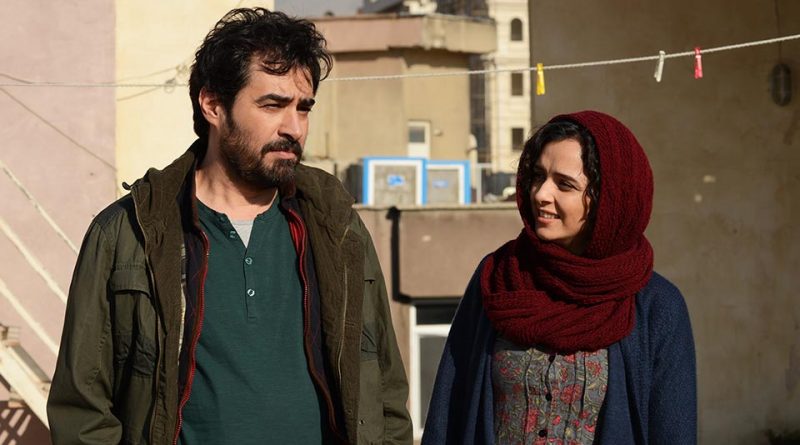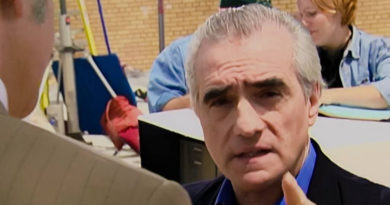Talking Without Speaking: Censorship and The Salesman (2016)
Spoiler warning: this article contains vague spoilers for The Salesman (2016)
For a variety of reasons, most countries in the Middle East don’t really have much in the way of movies. Saudi Arabia, an extreme example, even banned movies outright from 1983 to 2018. One of the major exceptions to this is Iran, which had a thriving film industry up until the late 1970s (gee, I wonder why it stopped) and has since experienced a resurgence from the 1990s into the present day. In fact, the Persians are so good at this whole filmmaking thing that premier filmmakers like Abbas Kairostami, Jafar Panahi, and others have raked in critical acclaim and awards around the world, some doing so even while under house arrest.
But no Iranian filmmaker is more celebrated in the US than perhaps Asghar Farhadi, who has already won 2 Academy Awards for Foreign Language Film and is now a perennial favorite to win just about any time he comes out with a new movie. One odd thing I noticed right away about his and other Iranian’s movies is that they are almost never rated R. Why? Almost all of them could easily be rated R based on the subject matter, but they aren’t. Take Farhadi’s 2016 film, The Salesman. It’s about an actor named Emad who goes on a spiraling quest for revenge after his wife, Rana, is assaulted in their home. Easy hard-R material, but it’s a PG-13 movie. This seems to be a result of several causes, which together paint an illuminating picture of Iran and cinema’s place within it.
Even with the success and acclaim they have enjoyed, Iranian filmmakers have had to work under strict censorship limitations. Since Iran is a theocracy, freedom of speech doesn’t really exist. You can’t criticize the government and most Iranian filmmakers unsurprisingly loathe the current regime. In addition, you have to clamp down on lurid subject matter: sex, violence, etc. The Salesman addresses this censorship directly: as its main characters stage an adaptation of Arthur Miller’s Death of a Salesman, one character (simply called The Woman in Miller’s play) is meant to be nude but the actress is in fact wearing a trench coat. The other actors have a hard time keeping straight faces as she dances around provocatively while completely covered, her act a little too farcical to believe.
The film as a whole has to operate under the same censorship as the play its characters put on. The central assault and all the circumstances around it are only implied, hinted at with small, but concrete images. The dialogue is 90% innuendo. An apartment tenant is a prostitute, but this is never said aloud. They just say, “she had a lot of men coming around.” These choices are not only indicative of the censorship imposed by the Iranian government but also Persian people’s tendency to self-censor. It’s a core part of Persian culture to constantly hide one’s hardships, one’s suffering, or one’s true intentions. One is expected to act like all is well and everything is fine. Rana’s assault is never discussed as an assault. Everyone is in denial of what happened, speaking around it, never addressing it directly. Some prefer to go on pretending that nothing happened at all, that she merely slipped and fell. Rana trudges on through life, suffering quietly. The landlord hides that a prostitute was the previous tenant of the couple’s apartment, and that her male visitors still come around. Emad seethes with rage and searches for revenge without ever letting on what he’s thinking or ever acknowledging his self-destructive sense of machismo. People go about their day and pretend the world isn’t falling apart.
The Salesman is, in some ways, a movie about how silence can destroy, and how the inability to communicate and tell the truth is mankind’s undoing. The landlord’s silence causes the assault, Rana’s silence strains her marriage, and the Emad’s silence destroys it. And when all is said and done, the central characters not only have their own failed relationship, but they have also broken apart another family and caused another man’s death. The final shot of the movie is Symbolism 101, the husband and wife sit apart, with devastated looks on their faces, putting on makeup as they get ready for Death of a Salesman’s opening night. Just cover it all up, and act like it never happened.
The Salesman is an excellent film. It’s rare that a movie’s themes are woven so tightly into its construction, and that the political limitations of what can and cannot be said further illustrate the work’s central ideas, rather than detract from them. It’s slow and may be too allusive for some, but it’s a great work of art and an obvious choice for all the awards that it won. Regardless of your political leanings or opinions on Iran right now, The Salesman is well worth checking out.
Originally posted June 26, 2019.




